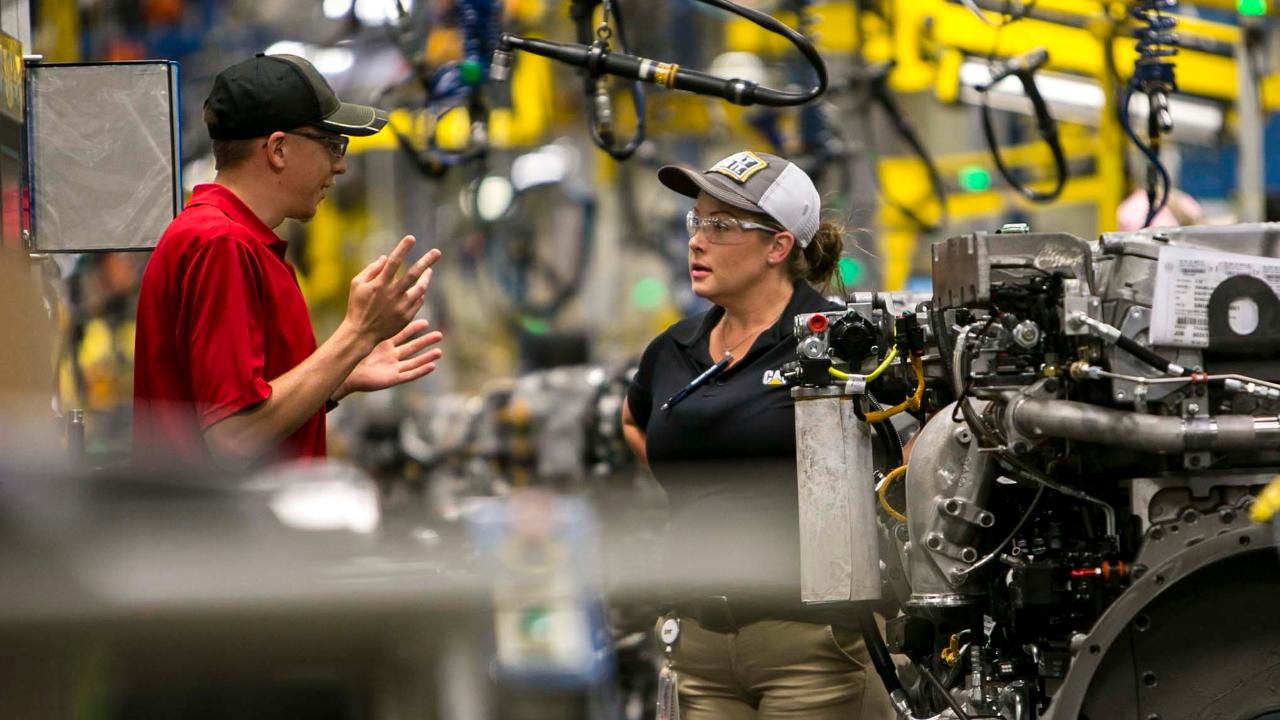US job openings data points to growing worker shortage
WASHINGTON, Dec 10 (Reuters) - U.S. job openings rebounded in October, but hiring continued to lag, suggesting a recent slowdown in job growth was most likely because employers could not find qualified workers.
The monthly Job Openings and Labor Turnover Survey, or JOLTS, released by the Labor Department on Monday underscored tightening labor market conditions, which economists say will encourage the Federal Reserve to raise interest rates next week despite volatility in financial markets.
"This report continues to paint a picture of an increasingly tight labor market," said John Ryding, chief economist at RDQ Economics in New York. "It continues to signal that the Fed has fully met its employment objective."
Job openings, a measure of labor demand, increased by 119,000 to a seasonally adjusted 7.1 million. That lifted the job openings rate to 4.5 percent from 4.4 percent in September. There were 6.1 million people unemployed in October.
Hiring rose by 196,000 to 5.9 million, matching August's record high. The hiring rate increased to 3.9 percent from 3.8 percent in September.
The government reported last Friday a slowdown in job growth in November, with nonfarm payrolls increasing by 155,000 jobs. The economy created 237,000 jobs in October. With job openings outpacing the number of unemployed people, economists expect employment growth to continue slowing through 2019.
"The bad thing about 7 million job openings and only 6 million unemployed is that the country is running out of workers and this will eventually slow economic growth within the next few years," said Chris Rupkey, chief economist at MUFG in New York. "The labor market is strong at the moment ... and companies are begging for help to produce and sell their goods and services out there."
TIGHT LABOR MARKET
There were 45,000 job openings in the information industry in October. The real estate and rental and leasing industry had 38,000 vacancies and there were 20,000 unfilled positions in educational services. State and local government education had 17,000 vacancies.
Hiring in October was driven by the transportation, warehousing, and utilities industry, which added 90,000 jobs. The manufacturing industry hired 43,000 workers.
The worker shortage appeared to be more prevalent in the Midwest and the Northeast.
Labor market tightness is marked by a 3.7 percent unemployment rate, which is the lowest in nearly 49 years and well below current Fed estimates of full employment at 4.5 percent.
The U.S. central bank has raised interest rates three times this year. The outlook for further rate hikes after the anticipated increase in borrowing costs at the Fed's Dec. 18-19 policy meeting is uncertain amid investor worries that economic growth might be slowing. Economists expect the jobless rate to drop to 3.4 percent in 2019.
"The labor market expansion will continue through 2019 but it will become increasingly more attenuated," said Sophia Koropeckyj, a senior economist at Moody's Analytics in West Chester, Pennsylvania.
"Not only will the tight labor market constrain net hiring, but such factors as higher interest rates and the waning impact of fiscal stimulus will bear down on demand conditions."
The number of workers voluntarily quitting their jobs fell for a second straight month in October. The quits rate, which policymakers and economists view as a measure of job market confidence, dipped one-tenth of a percentage point to 2.3 percent in October.
Layoffs were little changed at 1.7 million in October, holding the layoffs rate at 1.1 percent. But recent data, including applications for unemployment benefits, have suggested a rise in layoffs in November.
"The JOLTS data lag many other labor market indicators, and some of the more recent changes, particularly in initial claims, have pointed to more noticeable weakening in the job market," said Daniel Silver, an economist at JPMorgan in New York.
(Reporting by Lucia Mutikani Editing by Paul Simao)




















